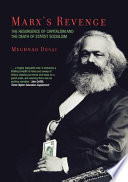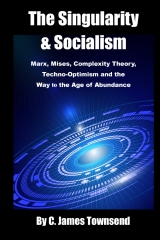You can say that this book was over 35 years in the making and was a culmination of my many diverse interests. I have one of those omnivorous minds and from my early years I had a thirst to know, especially to know how the world worked and where our ideas came from. Besides being an avid sci-fi fan in my early years I got a penchant for looking behind the scenes, to rummage through the dust bins of history as it were, for all of those juicy tidbits you never get in history courses in school. So I careened through such diverse topics as the history of philosophy, comparative religions, occult history, Gnosticism, Eastern and Western mysticism, physics, science and technology.
When I discovered Fritjof Capra’s The Tao of Physics in my early 20’s I thought I was in heaven and it was one of the reasons that I became a physics major at first in college. The Holographic Paradigm by Karl Pribram was also a real game changer for me. Though I didn’t finish my physics degree, which I regret now, I did receive a B.A. in Integrated Studies pulling all of my varied interests and elective courses together. One course that had a profound effect on me was a course on Christian Mysticism in which I was introduced to Teilhard of Chardin. I thought that somehow he had read my mind as I had already come to a complex interrelated and evolutionary vision of the universe; his works set me on the road to eventually discovering the Russian Cosmists, which many Transhumanist’s have now done. So I had a great base and background in science that also became united to various complexity ideas which have fascinated me throughout my life.
In my late 30’s I became more interested in political and economic philosophy and its history. I hate to admit it now but I had a short “conservative period” and read works by Russell Kirk and a few other conservatives, I eventually left that path as the “conservative” writers became more and more constipated in their thinking. Along the way I one day discovered and became enamored with Ayn Rand and read through most of her works that are in print. A footnote in some book I was reading mentioned The Law by Frederick Bastiat and that led me to Ludwig von Mises, F.A. Hayek, Murray Rothbard and the Austrian School of Economics. As an avid enthusiast in science and technology and its potential to change the world for the better I also ran across Dr. Julian Simon’s work The Ultimate Resource and then went on from there to read more extensively on Techno–Optimism. Also Ray Kurzweil, Matt Ridly, Kevin Kelly and so many others along the way were also a great inspiration to me.
But the funny thing that got me into researching Karl Marx and his thought was Ludwig von Mises himself. I read his magnum opus Human Action and then his tome Socialismand I became enthralled by the “socialism calculation” debate and then Hayek’s “knowledge problem.” I went on to read everything that was in print by Mises and a lot by Hayek. It was their debate with the Marxists and discussing the various issues, especially Mises comparing and contrasting Marxism with classical liberal theory as propounded by the Austrian School that really captured and fired my imagination.

So I delved into reading Marx himself and any work on the socialist calculation debate or knowledge problem I could get my hands on. As I researched I began to see so many areas of convergence and cross fertilization that I was just stunned. When I came across Complexity Theory and Complexity Economics in my mid 40’s the die was cast and the Rubicon was crossed. I was brought around full circle and came to see a holographic quality, an interrelationship between all of these various ideas; Marxist, classical liberal, techno-optimist, and complexity theory that was just fascinating. [...] You could just as easily say that I complete Teilhard de Chardin’s or even Marx’s works as well.
In all humility though I would say that Lord Desai’s book supports parts of my book by giving it the firm foundation in Marx’s evolutionary ideas from a thoroughly Marxist background, and I take the next logical step forward that completes Lord Desai’s train of thought after correcting 19th century ideas with modern complexity and techno-progressive discoveries. If it wasn’t for his book though, I would not have had as much confidence in finishing and publishing my own work as having such strong support from a Marxian economist of his stature gave my evolutionary view of Marx’s philosophy, gleaned from both Marx and the Austrians, the strength it needed. [...]

So Desai’s bravery in challenging the neo-leftist status quo to correct their view of Marx, that they glean from only reading Marx’s earlier works like The Manifesto, or reading Mother Jones, Salon et al. was in my mind heroic. He is to be given great credit and if you are on the left and haven’t been introduced to this line of evolutionary thinking within Marx’s thought, I recommend you read Marx’s Revenge before you take up and read my book. [...]
Where I think my book stands out is that I take up this dynamist and evolutionist current and show that if you want to get to utopia, if you want to transcend the present economic system that you find so disagreeable, you cannot do it by “bringing it down now,” or by greater and greater interventions in the system, or by escaping to a rural Arcadia, which never existed except in the reified imaginations of the Romantic’s. Utopia lies ahead of us, but it will only come about through evolutionary processes and that was Marx’s and the Classical Liberal’s genius, that they saw this fact, which the techno-optimists have actually proven. That is why my book is so new as it is a corrective to show that in order for the left to be a vital force again, ultimately it has to rediscover elements in its roots. [...]
We are facing the unprecedented, the unknown, we will have to invent a new terminology in Later Futurity as we move from the era of Early Futurity that we are presently in, but I find it heartening that libertarians, techno-libertarians, and techno-progressives (techno-Marxist’s like yourself BJ) love my book. A techno-libertarian I know messaged me on FB and thanked me for writing the book as she had always felt “torn down the middle.” she told me that emotionally she had socialist humanitarian sympathies coupled with libertarian economics that always seemed to war within her and that as she read my book it revealed to her how this dialectical delusion is easily transcended and that both halves can actually be seamlessly wedded together. That to me is truly encouraging and satisfying as I really wrote the book for individuals, like her, who are tired of today’s constant ideological battles that get us nowhere. To truly have real change, we have to come together and work as a team

[Humanity is not a resource that needs to be managed; it is an evolutionary force that needs to be finally set free.]
https://t.co/JhM7GWgPqx
[Science & technology are the only evolutionary forces on this planet and no future for any ideology, right or left]
https://t.co/JhM7GWgPqx
[many humans fear change and long for the very stable and static past. It is a delusion fueled by fear..]
http://t.co/sEG9RPdcJy
[Sri Aurobindo and Vivekananda provided the foundation before the Marxists. It is time to bring back their influence.
http://t.co/Twq1Fn2Tm9
